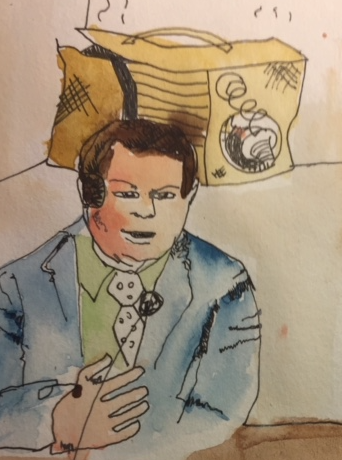- Polls apart - 4th March 2026
- Repeating on you… - 4th March 2026
- History man - 3rd March 2026

Controversial broadcaster The BBC, already under fire over its licence fee, is handling formal complaints from viewers who have to pay it, highlighting its own ‘conflicts of interest’ guidelines over revelations on The Eye that a presenter in Wales is having an affair with a senior executive even though officials in his department have commissioned a programme she fronts, we can disclose
We understand that managers at BBC Cymru Wales (BBC CW) are aware of the relationship, exposed exclusively by our journalists, between contentious married presenter Lucy Owen and BBC CW Radio Wales Editor Colin Paterson.
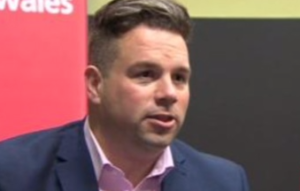
One complaint, passed to us, says: “It has come to my notice that you have possibly broken your own guidelines in relation to a potential staff conflict of interest.
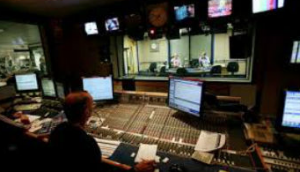
“Yet Mr Paterson’s officials have also commissioned a Sunday Radio Wales programme from Lucy Owen and I believe senior management at BBC Wales have been made aware of this situation and have chosen to ignore it.

The programme Ms Owen hosted on BBC CW RW was called ‘Sunday morning with Lucy Owen’, and apart from presenting BBC Wales Today as well as the BBC CW RW programme, she also hosts the BBC One Wales (BBCW) consumer affairs programme ‘X-Ray’ with her husband, Rhodri, who it’s predicted on Google she will split from.
As in the complaint, costs at The BBC have come under attack as the Prime Minister Boris Johnson examines arguments that the licence fee on all who have a television (in effect a tax) is unsustainable in the modern world of broadcasting.

BBC CW RW costs about 18 times more than BBC local radio stations – many of which have higher listening figures – and apart from two specialist language services, the station is the most expensive English language radio service per capita that the BBC funds.

Measured against the ratio of the millions spent on programmes and the extremely low listening figures, the station is the most expensive English-language station broadcast by the corporation in the UK.
Two years ago official statistics put the number of listeners for BBC Radio Two at 40 per cent of the population, while BBC CW RW’s number was just five per cent.
Listening numbers as shown by the RAJAR figures are a perennial source of problems for Mr Paterson, despite recent changes.
There has been a huge shake up in the line up at BBC CW RW as he has struggled to combat audiences which are at a record low.
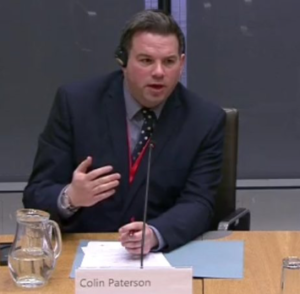
He described the new line up as a “creative challenge” and the statistics have made the scale of the challenge clear, revealing that his station had an average weekly audience of just 317,000 listeners in a three month period.
Among the changes that were announced in a bid to stem the tide of disastrous audience figures at his station, was a new breakfast programme hosted by different presenters on Monday to Thursday, to Fridays and Saturdays.
But a former day time programme presenter, who was called one of the main presenters on BBC CW RW at the beginning, Mike Flynn, was deeply unimpressed.

He told The Eye: “Paterson has not responded to my demands to resign or indeed had the decency to discuss where this strategy is leading. He is a public servant not some cavalier local businessman running a chip shop – £18 million in the kitty and the listeners are deserting in droves”.
Mr Flynn was equally angry at our revelations of the affair and said to us: “If Paterson has been having an affair with a Wales Today and Radio Wales presenter it brings his management skills in to question and he needs to be suspended immediately.”


But in May 2017 Mr Paterson proudly underlined his changes saying: “I’m so happy we’ve managed to secure a strong and varied set of new voices for the station”.
Yet others have been less happy.
His new morning programme on BBC CW RW was described by listeners as “awful”, “abysmal“, and “one of the worst programmes I have heard in a long time”.
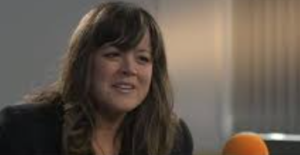
One contributor to the Digital Spy online forum has said in the past ‘Breakfast with Claire Summers‘: “… sounds like a community radio station bloody awful. Woman presenter has a grating voice and is fluffing her lines. Morning news programme should contain news”.
The Deputy Economy Minister in Wales Lee Waters AM has said publicly he is worried by what is happening and that there should be ‘serious’ and ‘challenging’ journalism, and objected to the decision to drop the Good Morning Wales (GMW) programme.
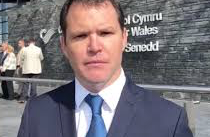
Mr Waters (himself a former producer on GMW) said the changes meant there would be “no serious news programme” broadcast at breakfast time.
His comments echo statements on Twitter when he has called for more ‘challenging’ journalism.
He quoted approvingly a call for “… serious, challenging journalism and consistently high-quality radio programmes which make politicians nervous…”

He has tweeted to BBC CW after the new schedule was announced: “Really concerned about this – absolutely nothing against Claire, but plenty against magazine format. We need agenda-setting news & scrutiny in this slot. You’re a national public service broadcaster. Where else are we going to get it?”.
The objections of Mr Waters have now been adopted by the Welsh Government.
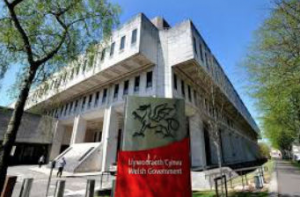
He has expressed concern at the changes to Ofcom, which is the external regulator of the BBC’s television, radio and on-demand programmes.
He said: “We feel that as a public service broadcaster, with a duty under its latest charter to reflect the nations, that they have an obligation to provide serious news and scrutiny. Just as BBC Scotland and BBC network do”.

But BBC CW remains fully behind the controversial changes to the RW schedule, saying it was “committed to delivering news to the widest audience”.
This ‘commitment’ should also stretch to answering complaints from licence fee-payers about a potential breach of the BBC’s own ‘conflicts of interest’ guidelines after we exclusively showed that a presenter in Wales is in a relationship with a senior executive, and officials in his department commissioned a programme she fronted.
 Phil Parry’s memories of his extraordinary 36-year award-winning career in journalism as he was gripped by the incurable disabling condition Hereditary Spastic Paraplegia (HSP), have been released in a major new book ‘A GOOD STORY’. Order the book now!
Phil Parry’s memories of his extraordinary 36-year award-winning career in journalism as he was gripped by the incurable disabling condition Hereditary Spastic Paraplegia (HSP), have been released in a major new book ‘A GOOD STORY’. Order the book now!









